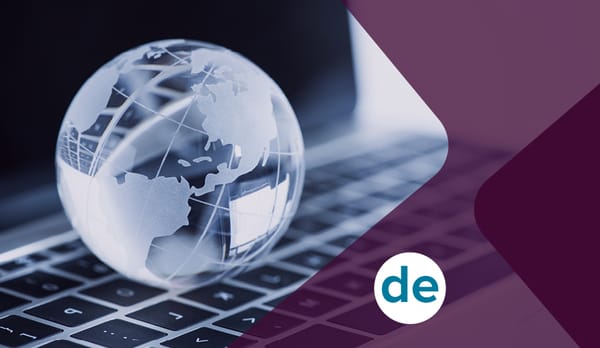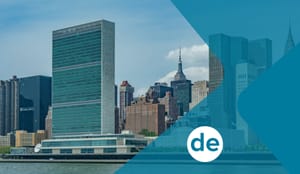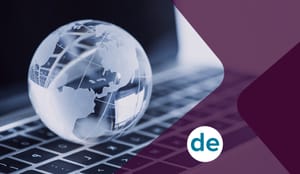WSIS Forum and AI for Good Summit
More than 11,000 experts from 169 countries participated in over 200 sessions at the ITU's WSIS Forum and the parallel AI for Good Summit held in Geneva from 6 to 9 July 2025.[1] The WSIS Forum focused primarily on overcoming the digital divide and the topic of connectivity. The AI Summit focused on the balance between regulation and innovation. The WSIS Forum also addressed the preparation of the WSIS+20 Review Conference, which will begin in October 2025 as part of the 80th UN General Assembly. Both events reaffirmed that a ‘human-centric and development-oriented’ information society can only be achieved through multi-stakeholder cooperation. Existing mechanisms such as the IGF and the ‘AI for Good Summit’ are excellent platforms for implementing the ‘Global Digital Compact’ adopted in 2024. New mechanisms would only lead to duplication and waste of resources.
WSIS+20 Review Conference
Preparations for the WSIS+20 Review Conference have continued to gather momentum. Following the WSIS Forum in Geneva in early July 2025, further consultations on the ‘Elements Paper’ (June 2025) took place on 29 July 2025, this time with governments and stakeholders. More than 100 comments were published on the WSIS+20 website. A more detailed roadmap was published on 18 August 2025.[2] The ‘zero draft’ of the final document is expected at the end of August. Following further stakeholder consultations on 13 and 14 October 2025, formal government negotiations will begin on 15 October 2025 in New York. During the ICANN meeting in Dublin, there will be another round of consultations on 27 and 28 October. A ‘Draft Output Document’ is announced for mid-November. The end of November and beginning of December are reserved for further negotiations and consultations. The extent to which non-governmental representatives will be involved in the final government negotiations is still open. The WSIS+20 final document will be adopted after a two-day ‘high-level meeting’ on 17 December 2025 in New York.
Informal Multistakeholder Sounding Board
The new Informal Multistakeholder Sounding Board (IMSB)[3], appointed at the beginning of July 2025, held its constituent meeting at the WSIS Forum in Geneva on 9 July 2025 together with the WSIS+20 co-facilitators, the UN ambassadors of Albania and Kenya, Suela Janina and Ekitela Lokaale. In virtual meetings on 4, 11 and 22 August 2025, the WSIS+20 consultations of 29 July 2025 were evaluated and a list of priorities (tricky issues) was drawn up. The IMSB is a new format for accompanying UN government negotiations. It is intended to serve as a hinge between governments and non-governmental stakeholders. The IMSB is not a ‘multistakeholder drafting team’, but rather a ‘watchdog’ that could act as a mediator in contentious issues. The exact procedures will only be developed during the WSIS+20 government negotiations. Among other things, the IMSB has proposed regular meetings with the co-facilitators and the UN WSIS+20 consultant, David Souter.
BRICS Summit in Rio de Janeiro
At the BRICS Summit in Rio de Janeiro on 6 July 2025, a ‘BRICS Leaders Statement on the Global Governance of AI’[4] was adopted. In it, the heads of state and government of the BRICS countries call for the UN to play a central role in the future development of AI governance. The multitude of AI activities carried out by various, mostly regional, private and Western-dominated organisations threatened to fragment the global AI discussion, with adverse consequences for the Global South. In a 20-point plan, the BRICS countries call for more national digital sovereignty, access to technologies, market regulations and ethical guidelines at the global level. The final declaration of the BRICS summit also addresses cyber security and the digital economy. With regard to cyber security, the BRICS countries renew their call for a ‘universal legal framework’ for responsible behaviour by states in cyberspace and call for the signing of the new UN Convention on Cybercrime. With regard to the digital economy, the ‘BRICS Partnership on the New Industrial Revolution (PartNIR)’ will be strengthened by the establishment of three new working groups and the promotion of a ‘resilient, safe, inclusive and interoperable digital public infrastructure’.[5]
US AI strategy ‘Winning the AI Race: America's AI Action Plan’
On 23 July 2025, the White House published the US AI strategy ‘Winning the AI Race: America's AI Action Plan’.[6] US President Trump explains: ‘As our global competitors race to exploit these technologies, it is a national security imperative for the US to achieve and maintain unquestioned and unchallenged global technological dominance’. The US sees AI development as a ‘race’ that it must win. The action plan aims to create space for unlimited innovation. Regulations are rejected. The chapter ‘International AI Diplomacy’ calls for a partnership with ‘like-minded countries’, but under US leadership. The US is critical of efforts by the UN, ITU, G7, G20, OECD and ICANN to create global ‘AI governance frameworks’. ‘Too many of these efforts have advocated for burdensome regulations, vague “codes of conduct” that promote cultural agendas that do not align with American values, or have been influenced by Chinese companies attempting to shape standards for facial recognition and surveillance.’
World AI Conference in Shanghai
On 26 July 2025, Chinese Premier Li Qiang proposed an ‘Action Plan for Global AI Governance’ and the establishment of a ‘Global AI Cooperation Organisation’ based in Shanghai at the ‘World AI Conference’ in Shanghai[7].[8] The Action Plan contains 13 points aimed at innovation, infrastructure development, capacity building, support for the Global South, the establishment of a ‘diverse, open, and innovative AI ecosystem’ (AI Plus), and ‘the building of an inclusive multi-stakeholder governance model.’[9] More than 1,300 experts from 36 countries participated in the WAIC, including Nvidia, Google, Tesla, Microsoft from the USA, as well as Siemens and Nobel Prize winner Geoffrey Hinton, known as the ‘AI Godfather’.[10]
Independent International Scientific Panel on AI and the ‘Global Dialogue on AI Governance’
On 17 July 2025, the UN published the fourth and final version of the modalities for the ‘Independent International Scientific Panel on AI’ and the ‘Global Dialogue on AI Governance’[11]. The AI panel is to consist of 40 independent personalities elected by the UN General Assembly and is to produce an annual AI report. The AI dialogue is to take place annually as a multi-stakeholder platform, alternating between Geneva and New York. The mandate is valid until the review conference for the Global Digital Compact (GDC) planned for 2027.
G20 Finance Ministers' Meeting in Durban
At the meeting of the G20 finance ministers in Durban on 18 July 2025[12], the exemption for US digital companies from the G20/OECD agreement on a digital tax (BEPS/Pillar 2) decided by the G7 finance ministers on 26 June 2025 was discussed. The G20 statement reads: "Members agreed to continue engaging constructively to address concerns regarding Pillar 2 global minimum taxes, with the shared goal of finding a balanced and practical solution that is acceptable for all. The meeting also affirmed a commitment to facilitate further progress to stabilise the international tax system, including a constructive dialogue on the tax challenges arising from the digitalisation of the economy." Whether the OECD/G20 agreement signed in 2021, to which 143 countries have acceded, will enter into force in 2025 remains open[13]. An alternative option is the UN. Negotiations on a ‘UN Framework Convention on International Tax Cooperation’[14] began there on 4 August 2025 in New York as part of a new ‘Intergovernmental Negotiations Committee (INC)’.[15]
25th China-EU Summit in Beijing
The 25th summit between China and the EU took place in Beijing on 24 July 2025. In a press statement, the EU called for ‘fostering reciprocity in the digital sphere, underlining that European companies faced limited access to China’. It criticised ambiguities regarding ‘Chinese data security rules and cross-border data flows from China, as well as malicious cyber activities detected as originating from China’.[16] The topic of AI was not addressed. On 28 July 2025, the EU Commission initiated proceedings against the Chinese tech group Temu for violations of the ‘Digital Market Act’ (DMA).[17]
EU Commission's ‘Quantum Strategy’
On 2 July 2025, the European Commission adopted its ‘Quantum Strategy’.[18] It aims to make Europe a global leader in quantum technology by 2030. 50 million euros will be made available for a quantum design facility and six pilot production facilities for quantum chips, as well as a pilot facility for the European quantum internet. A ‘European Academy for Quantum Competences’ is to be founded in 2026. Cooperation with the European space and defence industries is planned. On 10 July 2025, the European Commission adopted the final version of the ‘General-Purpose AI Code of Practice’[19], a guideline for the application of its AI law. On 14 July 2025, the European Commission presented guidelines on the protection of minors and a prototype app for age verification, which are intended to improve the protection of children and young people in the digital world. [20]
UN Open-ended Working Group (OEWG) on Cybersecurity
On 11 July 2025, the last meeting of the UN Open-ended Working Group (OEWG) on Cybersecurity ended in New York with the adoption of the final report by consensus[21]. The main outcome is that the 193 UN member states agreed to create a new permanent UN body for cybersecurity (Global Mechanism on Cybersecurity) that will continue to work on the OEWG topics (application of international law in cyberspace, norms for state behaviour in the digital space, and confidence- and capacity-building measures). The ‘Global Mechanism’ is to meet twice a year and reports to the First Committee of the UN General Assembly (UNGA). Non-governmental representatives will be able to participate in these meetings, subject to conditions defined in a separate modality paper[22]. Further outcomes of the OEWG include the creation of a Global Point of Contact (POC) Directory and the establishment of the Global Roundtable on ICT Security Capacity-building. The final decision will be made by the 80th UN General Assembly in autumn 2025.
Establishment of the Commission on Cyber Force Generation
On 4 August 2025, the Center for Strategic and International Studies (CSIS) and the Solarium Commission 2.0, two leading Washington think tanks, announced the establishment of a ‘Commission on Cyber Force Generation’[23]. The commission is to develop recommendations ‘to ensure and defend the US strategic superiority and security in the cyber domain.’ The commission is headed by Josh Stiefel (US Congress Armed Services Committee) and Lieutenant General Ed Cardon, former commander of the US Army Cyber Command.
Potsdam Call on Autonomous Weapon Systems
On 4 August 2025, 35 scientists from 21 countries, including four members of the ‘Internet Hall of Fame,’ published a ‘Potsdam Call on Autonomous Weapon Systems’[24]. They used the 80th anniversary of the Potsdam Agreement and the atomic bombings of Hiroshima and Nagasaki to appeal to today's state leaders to prevent a development in which decisions about life and death are handed over to AI-controlled autonomous weapon systems. They follow on from the ‘Russell-Einstein Manifesto’[25] published in 1955, in which scientists called on heads of state and government to prevent nuclear war. In two letters to UN Secretary-General Antonio Guterres and the President of the 80th UN General Assembly, Annalena Baerbock, they express their support for the drafting of a UN treaty on autonomous weapons systems.
[1] https://www.itu.int/net4/wsis/forum/2025/Home/Outcomes
[2] https://publicadministration.desa.un.org/wsis20/Preparatory%20Process%20Roadmap
[3] https://publicadministration.desa.un.org/sites/default/files/2021-04/2025/WSIS%2B20_IMSB_TOR.pdf
[4] http://www.brics.utoronto.ca/docs/250706-ai.html
[5] http://www.brics.utoronto.ca/docs/250706-declaration.html
[6] https://www.whitehouse.gov/wp-content/uploads/2025/07/Americas-AI-Action-Plan.pdf
[7] https://english.www.gov.cn/news/202507/26/content_WS6884bea8c6d0868f4e8f4732.html
[8] http://en.chinadiplomacy.org.cn/2025-07/26/content_117997800.shtml
[9] https://www.fmprc.gov.cn/eng./xw/zyxw/202507/t20250729_11679232.html
[10] https://www.globaltimes.cn/page/202507/1339323.shtml
[11] https://www.un.org/global-digital-compact/en/ai
[12] https://g20.org/g20-media/third-meeting-of-the-g20-finance-ministers-and-central-bank-governors/
[13]
https://www.deloitte.com/de/de/services/tax/analysis/pillar-2-umsetzung-globale-mindestbesteuerung.html?gad_source=1&gad_campaignid=20294778948&gbraid=0AAAAAD-dxRK5-52D3dnT0GRt6d5BCyFBL&gclid=Cj0KCQjw-4XFBhCBARIsAAdNOkuog6w4kNXV4HgHI5ESZBPgzH12bQBejJZ66Oeq9E2httxiqvN7OlAaAo5GEALw_wcB#3
[14] https://www.iisd.org/articles/explainer/united-nations-international-tax-convention-negotiations
[15] https://financing.desa.un.org/inc
[16] https://ec.europa.eu/commission/presscorner/detail/en/ip_25_1901
[17] https://ec.europa.eu/commission/presscorner/detail/en/ip_25_1913
[18] https://ec.europa.eu/commission/presscorner/detail/en/ip_25_1682
[19] https://ec.europa.eu/commission/presscorner/detail/en/ip_25_1787
[20] https://ec.europa.eu/commission/presscorner/detail/en/ip_25_1820
[21] https://docs-library.unoda.org/Open-Ended_Working_Group_on_Information_and_Communication_Technologies_-_(2021)/Letter_from_OEWG_Chair_10_July_2025.pdf
[22]
https://docs-library.unoda.org/Open-Ended_Working_Group_on_Information_and_Communication_Technologies_-_(2021)/42_cosponsors_-_Practical_Modalities_on_Stakeholder_Participation_in_the_Future_UN_Mechanism_-_cross-regional_paper_-_July_2025.pdf
[23] https://www.csis.org/news/csis-launches-commission-cyber-force-generation
[24] https://potsdamcall.dgdg.blog/
[25] https://ahf.nuclearmuseum.org/ahf/key-documents/russell-einstein-manifesto/












